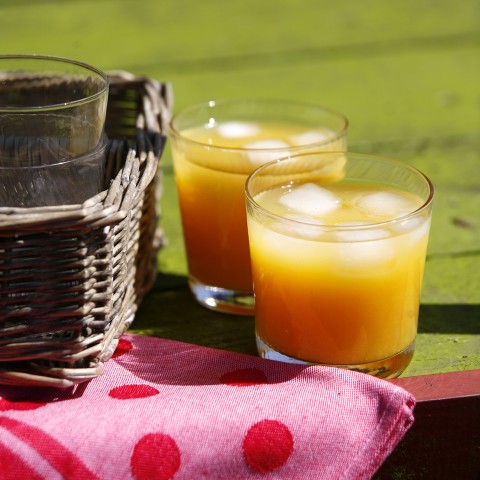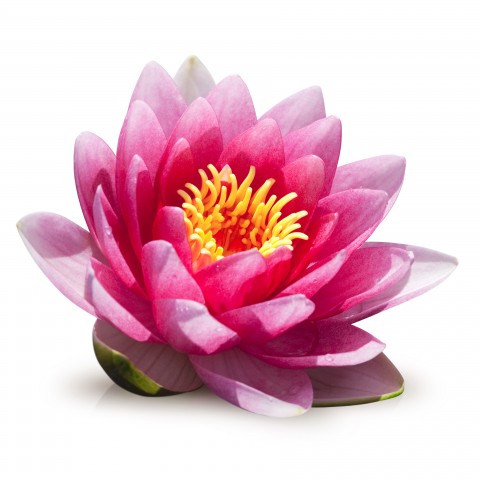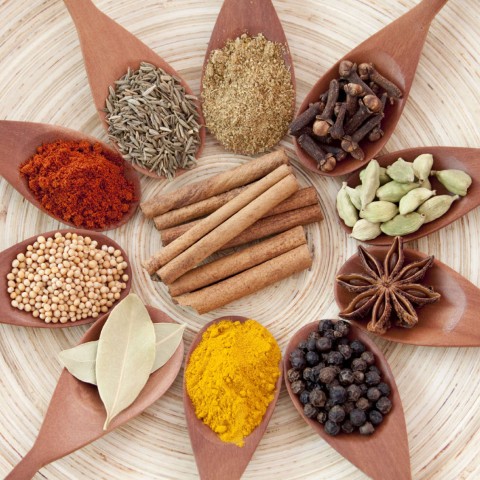Storytelling is something Indians are best at. And that applies to the mundane day-to-day conversations as well. Once you get the sense of how Indian folks talk, you’ll notice that they abundantly use descriptive words in Hindi. The reason being, it adds lots of drama and spice to their chitchats. Thanks to the adjective description in Hindi, even the simplest of tittle-tattle is never dull. By learning adjectives in Hindi grammar, you can become a part of this too!
On a similar note, the local people are generously expressive, too. That’s why, if you wish to gel with them, a basic knowledge of common Hindi adjectives can transform your speech and make you sound like a native. Learning the proper use of Hindi adjectives is easier than you may imagine, and HindiPod101 aims to make its Hindi adjectives lessons fun and simple! So, let’s get going.
- Definition of Adjective & Meaning in Hindi
- Examples of Adjective Sentences in Hindi
- Types of Adjective in Hindi Grammar
- How to Use Masculine and Feminine Adjectives
- Adjective Words List in Hindi
- Widen Your Hindi Learning Scope with HindiPod101
1. Definition of Adjective & Meaning in Hindi
First things first. Let’s start with the adjective definition, and examples in Hindi.
An adjective is a word that describes the quality of a noun. In Hindi, it is known as विशेषण (visesan).
Before we set out to learn Hindi adjectives & their examples, it’s important to study the correct process of using these common Hindi adjectives.
2. Examples of Adjective Sentences in Hindi
In English, we place the adjective first, which is then followed by the noun in a sentence. For instance, “tasty fruit” (adjective + noun).
But when this same phrase is put into a proper sentence, the noun and adjective change their positions while the helping verb comes in between: “The fruit is tasty,” (noun + be verb + adjective).
However, in the following Hindi adjectives examples, this process is a little different than how it is in English.
In Hindi grammar, adjectives precede the noun in phrases.
For instance,
- नीला आकाश (NiiLaa aakaas) = “blue sky” [adjective + noun]
- And छोटा कमरा (chotaa kamaraa) = “small room” [adjective + noun]
In case of a complete sentence though, the adjective and noun change places but there’s no helping verb in the middle. Instead, the “be” verb comes at the end of the sentence.
For instance:
- खाना (noun) गरम (adjective) है। (khaaNaa garam hai.) = “The food is warm.”
- And यह बग़ीचा (noun) सुन्दर (adjective) है। (yah bagiicaa SuNDar hai.) = “This garden is beautiful.”
The difference between adjectives and adverbs is that an adjective tells the quality of a noun, whereas an adverb describes the quality of the verb. Understanding this crucial difference between adjectives and adverbs will save you from so much potential confusion and also sharpen your language skills.
3. Types of Adjective in Hindi Grammar
In order to learn Hindi adjectives more effectively, one must study and thoroughly explore the four types of adjectives in Hindi.
1- Qualitative Adjectives
As the name suggests, this group of words comprises of the adjective of quality in Hindi. These qualitative adjectives can describe the following:
- Negative or positive personality traits
- Shapes
- Placement of things
- Colors
- Smells
Example:
-
ऊपर (uupar) vs. नीचे (Niice) = “up vs. down”
अमीर (amiir) vs. ग़रीब (ġariib) = “rich vs. poor”
2- Quantitative Adjectives
These tells us about the definite and indefinite quantity of nouns.
Example:
-
दो दर्जन केले (Do DarjaN keLe) = “Two dozen bananas”
कई तारे (kaii Taare) = “Many stars”
3- Numeral Adjectives
It will be much quicker to learn Hindi adjectives in this category if you’ve already gone through our article on Hindi Counting. Basically, these types of adjectives point to the specific number of nouns.
Example:
-
चार कमरे (caar kamare) = “Four rooms”
पचास फूल (pacaaS phuuL) = “Fifty flowers”
4- Demonstrative Adjectives
These descriptive words in Hindi stand for pronouns that show their relationship with a particular noun.
Example:
-
मेरी कलम (merii kaLam) = “My pen”
उसकी किताब (uSakii kiTaab) = “His / her book”
4. How to Use Masculine and Feminine Adjectives
Now that you’re well aware of the adjective definition and examples in Hindi, there’s another significant point that’s worth mentioning.
Hindi is a language in which nouns are basically divided into masculine and feminine genders. So, when the need arises to convert a noun to an adjective in Hindi, it has to be done gender-wise too. And we’re going to share with you the best and most useful tip here.
1- Masculine Adjectives
For adjectives referring to masculine nouns, the adjective description in Hindi usually ends with the sound aa.
Such as:
-
लंबा आदमी (Lambaa aaDamii) = “A tall man”
सस्ता फल (SaSTaa phaL) = “Cheap fruit”
नीला आसमान (NiiLaa aaSamaaN) = “Blue sky”
2- Feminine Adjectives
For adjectives referring to feminine nouns, the adjective description in Hindi usually ends with the sound ii.
Such as:
-
लंबी औरत (Lambii auraT) = “A tall woman”
सस्ती सब्ज़ी (SaSTii Sabzii) = “Cheap vegetable”
नीली किताब (NiiLii kiTaab) = “Blue book”
3- Gender-neutral Adjectives
For adjectives referring to gender-neutral nouns, the descriptive words in Hindi usually end with the sound “-a”. Nonetheless, there can be exceptions.
Examples:
-
ईमानदार (iimaaNaDaar) आदमी (aaDamii) / औरत (auraT) = “An honest man / woman”
सुंदर (SuNDar) लड़की (Ladkii) / लड़का (Ladkaa) = “A beautiful boy / girl”
5. Adjective Words List in Hindi
1- Describing Dimensions, Distance, and Frequency
We’ve brought you the most commonly used adjectives in Hindi to make learning a piece of cake for you. Let’s start with these adjectives, which tells us about the shape, size, and frequency of a noun.
| Adjective / Antonym | English Meaning | Example Phrase | English Meaning |
|---|---|---|---|
| छोटा (chotaa) vs बड़ा (badaa) |
“Small” vs “Big” |
एक छोटा कमरा (ek chotaa kamaraa) vs एक बड़ा हाथी (ek badaa haaTHii) |
“One small room” vs “One big elephant” |
| पतला (paTaLaa) vs चौड़ा (caudaa) |
“Narrow” vs “Wide” |
पतली गली (paTaLii gaLii) vs चौड़ी सड़क (caudii Sadak) |
“A narrow lane” vs “A wide road” |
| लंबा (Lambaa) vs नाटा (Naataa) |
“Tall” vs “Short” |
लंबा लड़का (Lambaa Ladakaa) vs नाटा आदमी (Naataa aaDamii) |
“A tall boy” vs “A short man” |
| भारी (bhaarii) vs हल्का (haLkaa) |
“Heavy” vs “Light” |
भारी पत्थर (bhaarii paTTHar) vs हल्का झोला (haLkaa jhoLaa) |
“A heavy stone” vs “A light bag” |
| ऊँचा (uuncaa) vs नीचा (Niicaa) |
“High” vs “Low” |
ऊँचा पहाड़ (uuncaa pahaad) vs नीची पहाड़ी (Niicii pahaadii) |
“A high mountain” vs “A low hill” |
| दूर (Duur) vs पास (paaS) |
“Far” vs “Near” |
दूर का मंदिर (Duur kaa maNDir) vs पास का ढाबा (paaS kaa dhaabaa) |
“Far away temple” vs “Nearby eatery” |
| कम (kam) / थोड़ा (THodaa) vs ज़्यादा (zyaaDaa) |
“Little” vs “More” |
कम / थोड़ा भोजन (kam / THodaa bhojaN) vs ज़्यादा पानी (zyaaDaa paaNii) |
“Little food” vs “More water” |
| कुछ (kuch) vs कई (kaii) |
“Few” vs “Many” |
कुछ सिक्के (kuch Sikke) vs कई किताबें (kaii kiTaaben) |
“A few coins” vs “Many books” |
2- Describing Values
Below you’ll find a list of basic Hindi adjectives to express the value of a noun.
| Adjective / Antonym | English Meaning | Example Phrase | English Meaning |
|---|---|---|---|
| अच्छा (acchaa) vs बुरा (buraa) |
“Good” vs “Bad” |
अच्छा दोस्त (acchaa DoST) vs बुरी आदत (burii aaDaT) |
“A good friend” vs “A bad habit” |
| बेहतरीन (behaTariiN) vs ख़राब (kharaab) |
“Exceptional” vs “Awful” |
बेहतरीन संगीत (behaTariiN SangiiT) vs ख़राब लिखावट (kharaab Likhaavat) |
“Exceptional music” vs “Awful handwriting” |
| सस्ता (SaSTaa) vs महँगा (mahangaa) |
“Cheap” vs “Expensive” |
सस्ता खिलौना (SaSTaa khiLauNaa) vs महँगा मकान (mahangaa makaaN) |
“Cheap toy” vs “Expensive house” |
| असली (aSaLii) vs नक़ली (NaqaLii) |
“Original” vs “Fake” |
असली हीरा (aSaLii hiiraa) vs नक़ली चित्र (NaqaLii ciTr) |
“Original diamond” vs “Fake painting” |
3- Describing Feeling & Sense
This sub-category consists of adjective words in Hindi that tell us about the different feelings and sensations related to, but not confined to, physical touch.
For more comprehensive learning, you can also check out our adjective list with Hindi meanings here.
| Adjective / Antonym | English Meaning | Example Phrase | English Meaning |
|---|---|---|---|
| ठंडा (thaNdaa) vs गरम (garam) |
“Chilled” vs “Hot” |
ठंडी शिकंजी (thaNdii sikaNjii) vs गरम सूप (garam Suup) |
“Chilled lemonade” vs “Hot soup” |
| गुनगुना (guNaguNaa) vs जमी हुई (jamii huyii) |
“Lukewarm” vs “Frozen” |
गुनगुना पानी (guNaguNaa paaNii) vs जमी हुई कुल्फ़ी (jamii huyii kuLfii) |
“Lukewarm water” vs “Frozen ice cream” |
| कोमल (komaL) vs कठोर (kathor) |
“Delicate” vs “Tough” |
कोमल पंख (komaL pankh) vs कठोर स्वभाव |
(kathor Svabhaav) “Delicate feather” vs “Tough nature” |
| दर्दनाक (DarDaNaak) | “Painful” | दर्दनाक हादसा (DarDaNaak haaDaSaa) |
“Painful incident” |
4- Describing Human Behaviors and Feelings
This subheading covers the Hindi adjectives that describe people’s behaviors and emotions. These basic Hindi adjectives can help you talk about anyone and everyone!
1) Positive Personality Traits in Hindi
First we’ll begin with words for positive personality traits in Hindi. Do you know any Hindi adjectives for “beautiful?” The adjectives for “beautiful” in Hindi are ख़ूबसूरत (khuubaSuuraT) and सुंदर (SuNDar).
Check out this amazing Hindi adjectives list and find out the most suitable personality word for yourself!
| Positive Adjectives | English Meaning | Example Phrase | English Meaning |
|---|---|---|---|
| दयालु (DayaaLu) | “Kind” | दयालु राजा (DayaaLu raajaa) | “Kind ruler” |
| ख़ुशमिज़ाज (khusamizaaj) | “Jolly” | ख़ुशमिज़ाज दोस्त (khusamizaaj DoST) | “Jolly friend” |
| शांत (saaNT) | “Quiet” | शांत लड़की (saaNT Ladakii) | “Quiet girl” |
| उदार (uDaar) | “Generous” | उदार व्यक्ति (uDaar vyakTi) | “Generous person” |
| ईमानदार (iimaaNaDaar) | “Honest” | ईमानदार दुकानदार (iimaaNaDaar DukaaNaDaar) | “Honest shopkeeper” |
| भरोसेमंद (bharoSemaND) | “Trustworthy” | भरोसेमंद नौकर (bharoSemaND Naukar) |
“Trustworthy servant” |
2) Negative Adjective Words List in Hindi
Below is a collection of some negative adjective words in Hindi. Feel free to explore our special lesson material on personality adjectives, too!
| Negative Adjectives | English Meaning | Example Phrase | English Meaning |
|---|---|---|---|
| ग़ुस्सैल (ġuSSaiL) | “Angry” | ग़ुस्सैल अध्यापक (ġuSSaiL aDHyaapak) | “Angry teacher” |
| बातूनी (baaTuuNii) | “Talkative” | बातूनी विद्यार्थी (baaTuuNii viDyaarTHii) | “Talkative student” |
| उदास (uDaaS) | “Sad” | उदास बच्चा (uDaaS baccaa) | “Sad kid” |
| शैतान (saiTaaN) | “Naughty” | शैतान लड़के (saiTaaN Ladake) | “Naughty boys” |
| चालाक (caaLaak) | “Clever” | चालाक लोमड़ी (caaLaak Lomadii) | “Clever fox” |
| मूर्ख (muurkh) | “Dumb” | मूर्ख अधिकारी (muurkh aDHikaarii) | “Dumb officer” |
| चुग़लख़ोर (cuġaLakhor) | “Sneaky” | चुग़लख़ोर पड़ोसी (cuġaLakhor padoSii) | “Sneaky neighbor” |
| निर्दयी (NirDayii) | “Cruel” | निर्दयी राजा (NirDayii raajaa) | “Cruel king” |
| कंजूस (kaNjuuS) | “Miserly” | कंजूस आदमी (kaNjuuS aaDamii) |
“Miserly man” |
5- Describing Levels of Pace & Importance
The difference between adjectives and adverbs in Hindi is tricky. To avoid getting confused with the adverbs, you must pay close attention to these Hindi adjectives examples, which describe the speed and other qualities of nouns.
| Adjective / Antonym | English Meaning | Example Phrase | English Meaning |
|---|---|---|---|
| तेज़ (Tez) vs धीमा (DHiimaa) |
“Fast” vs “Slow” |
तेज़ ख़रगोश (Tez kharagos) vs धीमा कछुआ |
(DHiimaa kachuaa) “Fast rabbit” vs “Slow tortoise” |
| आसान (aaSaaN) vs मुश्किल (muskiL) |
“Easy” vs “Difficult” |
आसान सवाल (aaSaaN SavaaL) vs मुश्किल पहेली (muskiL paheLii) |
“Easy question” vs “Difficult riddle” |
| ज़रूरी (zaruurii) vs मामूली (maamuuLii) | “Important” vs “Ordinary” |
ज़रूरी बैठक (zaruurii baithak) vs मामूली काम (maamuuLii kaam) |
“Important meeting” vs “Ordinary task” |
6- Describing Appearance
1) Shades and Colors
Do you love to talk about colors? Learn the color names and pour your heart out with these mind blowing describing words in Hindi.
| Adjective / Antonym | English Meaning | Example Phrase | English Meaning |
|---|---|---|---|
| गहरा (gaharaa) vs हल्का (haLkaa) |
“Deep” / “Dark” vs “Light” |
गहरी पीली दीवार (gaharii piiLii Diivaar) vs हल्का बैंगनी फूल (haLkaa baingaNii phuuL) |
“Deep yellow wall” vs “Light purple flower” |
| चटख़ (catakh) vs फ़ीका (fiikaa) |
“Bright” vs “Dull” |
चटख़ लाल साड़ी (catakh LaaL Saadii) vs फ़ीका लाल कपड़ा (fiikaa LaaL kapadaa) |
“Bright red saree” vs “Dull red cloth” |
| काला (kaaLaa) vs सफ़ेद (SafeD) |
“Black” vs “White” |
काला मोती (kaLaa moTii) vs सफ़ेद बादल (SafeD baaDaL) |
“Black pearl” vs “White clouds” |
| लाल (LaaL) | “Red” | लाल टमाटर (LaaL tamaatar) | “Red tomato” |
| गुलाबी (guLaabii) | “Pink” | गुलाबी कमल (guLaabii kamaL) | “Pink lotus” |
| हरा (haraa) | “Green” | हरी धनिया पत्ती (harii DHaNiyaa paTTii) | “Green coriander leaves” |
| नीला (NiiLaa) | “Blue” | नीला आसमान (NiiLaa aaSamaaN) | “Blue sky” |
| नारंगी (Naarangii) | “Orange” | नारंगी क़मीज़ (Naarangii qamiiz) | “Orange shirt” |
| पीला (piiLaa) | “Yellow” | पीला धागा (piiLaa DHaagaa) | “Yellow thread” |
| भूरा (bhuuraa) | “Brown” | भूरी बिल्ली (bhuurii biLLii) | “Brown cat” |
2) Describing Various Shapes & Textures
This list of adjectives in Hindi will give you a greater edge while describing specific shapes or textures. Have a look and practice using them in sentences.
| Adjective / Antonym | English Meaning | Example Phrase | English Meaning |
|---|---|---|---|
| गोल (goL) | “Round” | गोल तश्तरी (goL TasTarii) | “One round saucer” |
| चौकोर (caukor) | “Square” | चौकोर मेज़ (caukor mez) | “Square table” |
| तिकोना (TikoNaa) | “Triangular” | तिकोना पिरामिड (TikoNaa piraamid) | “Triangular pyramid” |
| नुकीला (NukiiLaa) | “Pointed” | नुकीला सामान (NukiiLaa SaamaaN) | “Pointed thing” |
| धारदार (DHaaraDaar) | “Sharp” | धारदार चाकू (DHaaraDaar caakuu) | “Sharp knife” |
| चिकना (cikaNaa) | “Smooth” | चिकना पत्थर (cikaNaa paTTHar) | “Smooth stone” |
7- Describing Weather Conditions
Do you often struggle to find that perfect weather adjective in Hindi? Look no further! Not only have we got you covered on the adjectives, but we’ve also got a whole new lesson for you on the Indian weather.
| Adjective | English Meaning | Example Phrase | English Meaning |
|---|---|---|---|
| चिलचिलाती (ciLaciLaaTii) | “Scorching” | चिलचिलाती गर्मी (ciLaciLaaTii garmii) | “Scorching heat” |
| बर्फ़ीली (barfiiLii) | “Freezing” | बर्फ़ीली ठंडक (barfiiLii thaNdak) | “Freezing cold” |
| उमस (umaS) | “Humid” | उमस भरी हवा (umaS bharii havaa) | “Humid air” |
| सुहाना (SuhaaNaa) | “Pleasant” | सुहाना मौसम (SuhaaNaa mauSam) | “Pleasant weather” |
8- Describing Flavors and Taste
Honestly, this section is going to be every food-lover’s favorite. In this section, we’ll introduce you to the Hindi adjectives for food. And while you’re at it, wouldn’t it be fun to find out your favorite Indian food and spell it out in Hindi?
| Adjective | English Meaning | Example Phrase | English Meaning |
|---|---|---|---|
| मीठा (miithaa) | “Sweet” | मीठा हलवा (miithaa haLavaa) | “Sweet Halva” |
| नमकीन (NamakiiN) | “Salted” | नमकीन पराठा (NamakiiN paraathaa) | “Salted flatbread” |
| तीखा (tiikhaa) | “Hot” | तीखी मिर्च (tiikhii mirc) | “Hot pepper” |
| खट्टा (khattaa) | “Sour” | खट्टा नींबू (khattaa Niimbuu) | “Sour lemon” |
| कड़वा (kadavaa) | “Bitter” | कड़वा करेला (kadavaa kareLaa) | “Bitter gourd” |
| चटपटा (catapataa) | “Spicy” | चटपटी सब्ज़ी (catapatii Sabzii) | “Spicy curry” |
| उबला (ubaLaa) | “Boiled” | उबली दाल (ubaLii DaaL) | “Boiled pulses” |
| सादा (SaaDaa) | “Bland” | सादा खाना (SaaDaa khaaNaa) | “Bland food” |
| स्वादिष्ट (SvaaDist) | “Delicious” | स्वादिष्ट मक्खन (SvaaDist makkhaN) | “Delicious butter” |
9- Describing a Situation
Whether you’re looking for any funny Hindi adjectives or serious ones, here are some of the key phrases that may come in handy when you have to describe a situation.
| Adjective / Antonym | English Meaning | Example Phrase | English Meaning |
|---|---|---|---|
| ख़तरनाक (khaTaraNaak) vs सुरक्षित (SuraksiT) |
“Dangerous” vs “Safe” |
ख़तरनाक खेल (khaTaraNaak kheL) vs सुरक्षित रास्ता (SuraksiT raaSTaa) |
“Dangerous game” vs “Safe path” |
| मज़ेदार (mazeDaar) vs उबाऊ (ubaauu) |
“Interesting” vs “Boring” |
मज़ेदार कहानी (mazeDaar kahaaNii) vs उबाऊ नाटक (ubaauu Naatak) |
“Interesting story” vs “Boring play” |
10- Describing Physical Traits & Conditions
Now let’s move forward and start learning Hindi adjectives for physical traits and conditions.
| Adjective / Antonym | English Meaning | Example Phrase | English Meaning |
|---|---|---|---|
| जवान (javaaN) vs बूढ़ा (buudhaa) |
“Young” vs “Old” |
जवान विद्यार्थी (javaaN viDyaarTHii) vs बूढ़ा मज़दूर (buudhaa mazaDuur) |
“Young student” vs “Old laborer” |
| मज़बूत (mazabuuT) vs कमज़ोर (kamazor) |
“Strong” vs “Weak” |
मज़बूत शरीर (mazabuuT sariir) vs कमज़ोर बच्चा (kamazor baccaa) |
“Strong body” vs “Weak child” |
| बीमार (biimaar) vs स्वस्थ (SvaSTH) |
“Sick” vs “Healthy” |
बीमार औरत (biimaar auraT) vs स्वस्थ बेटी (SvaSTH betii) |
“Sick woman” vs “Healthy daughter” |
11- Describing Appearances & Conditions
Here are more specific words for describing appearance and condition. The more you practice using them in daily conversations, the better your Hindi language skills will become.
| Adjective / Antonym | English Meaning | Example Phrase | English Meaning |
|---|---|---|---|
| ख़ूबसूरत (khuubaSuuraT) vs बदसूरत (baDaSuuraT) |
“Pretty” vs “Ugly” |
ख़ूबसूरत चेहरा (khuubaSuuraT caharaa) vs बदसूरत तस्वीर (baDaSuuraT TaSviir) |
“Pretty face” vs “Ugly painting” |
| अमीर (amiir) vs ग़रीब (ġariib) |
“Rich” vs “Poor” |
अमीर परिवार (amiir parivaar) vs ग़रीब किसान (ġariib kiSaaN) |
“Rich family” vs “Poor farmer” |
| मोटा (motaa) vs दुबला-पतला (DubaLaa-paTaLaa) |
“Fat” vs “Thin” |
मोटा आदमी (motaa aaDamii) vs दुबला लड़का (DubaLaa Ladakaa) |
“Fat man” vs “Thin boy” |
6. Widen Your Hindi Learning Scope with HindiPod101
We’ve finally come to the end of this article. We hope you’ve enjoyed our lesson so far. What are some of your favorite Hindi adjectives? Did we miss any good Hindi adjectives that you still want to learn? Let us know in the comments!
When you’re with us, Hindi language-learning has no limits. All you need to do is sign up at our HindiPod101.com homepage and dive into the endless ocean of our Hindi lesson library and free Hindi vocabulary lists!
Even if you’re out most of the time, you can catch up with us on the go, thanks to our easy-to-download mobile application. And our “MyTeacher” messenger can also be there to help you out anytime, anywhere. So, what are you waiting for? Punch in your favorite word in our free Hindi dictionary and get started!





















